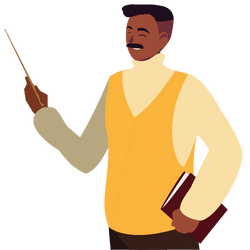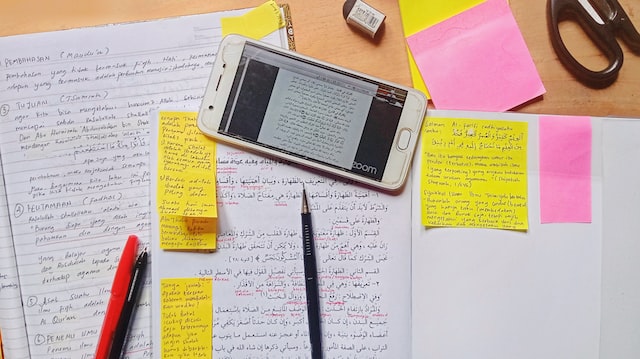Q&A — Learning Math Through Carpentry With ‘Wise Young Builders’: Founder Elijah Moses On Learning Pods, Exposing More Students To Trades & Post-Pandemic Schooling
Q&A — Learning Math Through Carpentry With ‘Wise Young Builders’: Founder Elijah Moses on Learning Pods, Exposing More Students to Trades & Post-Pandemic Schooling
Around ten years ago, Elijah Moses embarked on a mission to teach his son the fundamentals of carpentry. Little did he know that this would lead him to establish a nonprofit organization dedicated to educating young individuals on the proper use of measuring tools, the art of craftsmanship, and the practical application of mathematics.
Initially, Moses was homeschooling his two children and participating in homeschool cooperatives, where families shared resources and parents specialized in different subjects. It was during this time that a group of moms discovered his carpentry teachings and urged him to extend them to their sons as well.
At first, Moses was reluctant and resisted their requests, but he soon realized that he had all the necessary resources at his disposal, including a workshop, tools, and the ability to develop a comprehensive curriculum. In 2010 or 2011, he conducted a six-week class, and that marked the beginning of his journey with Wise Young Builders.
Today, Wise Young Builders is a nonprofit organization that offers in-school, after-school, and summer programs in Washington, D.C., as well as Buffalo and Niagara Falls, New York. The organization aims to expand its reach to other locations in the future.
The program caters to children between the ages of 8 and 12, teaching them the skills to build furniture, such as bookshelves and chairs, along with other small crafts. Additionally, the curriculum incorporates essential mathematical concepts relevant to their projects and exposes them to literary works by African American authors, including Booker T. Washington.
Moses’s own upbringing in Buffalo, where his family owned properties, and his involvement as a labor force alongside his brothers, shaped his passion for craftsmanship. He pursued both vocational and college preparatory classes in high school before attending college. His professional journey included working for a trade union and contributing to youth development programs at the University of Buffalo and the U.S. Department of Labor.
In recognition of his expertise, Moses has been invited to join a panel of parent-educators and national experts to discuss the future of learning pods in light of the ongoing pandemic. The conversation will be hosted by the VELA Education Fund, , and the Center on Reinventing Public Education, with whom Wise Young Builders has received financial support from the Vela Education Fund.
Recently, conducted an interview with Moses, delving into his background, the Wise Young Builders curriculum, and his thoughts on the future of education. Here are some of the key highlights from the conversation:
1. Engaging students after the disruption caused by COVID-19:
Moses believes that students have become accustomed to learning from the comfort of their homes and may find it challenging to readjust to traditional classrooms. Therefore, teachers will need to find innovative ways to capture their attention and immerse them in the learning process. Exciting them about their educational endeavors could be an excellent approach to achieve this.
2. The potential changes in education post-pandemic:
One significant outcome of the pandemic is the growing acceptance of homeschooling, which has challenged the conventional notion of what school should be. Additionally, non-institutional learning communities, such as learning pods, have gained prominence. Moses, having been involved in homeschool co-ops that collaborate with Wise Young Builders, emphasizes the success of this alternative approach. Some parents have come to the realization that they do not necessarily need traditional schools, and this trend may continue even after the pandemic subsides.
3. Advantages of learning pods:
Learning pods offer various benefits, including personalized education, tailored instruction, and a sense of community. By forming tight-knit learning communities, parents can provide a holistic and well-rounded educational experience for their children, ensuring their academic and personal growth.
In conclusion, Elijah Moses’s dedication to teaching carpentry skills to his son led to the establishment of Wise Young Builders, a nonprofit organization that has made a significant impact on the lives of young individuals. Through their programs, children not only acquire practical skills but also gain a deeper understanding of mathematics and cultural literature. As the education landscape continues to evolve, Moses believes that homeschooling and learning pods could become more prevalent, revolutionizing the way we approach education.
The incorporation of Wise Young Builders into the curriculum involves the inclusion of literature as a means of problem-solving, gaining knowledge, and understanding history. One prominent book that students read is "Sowing and Reaping" by Booker T. Washington, which emphasizes the concept that the outcome is proportional to the effort put in. In other words, if one invests a little work or plants a few seeds, they should anticipate a bountiful harvest.
Another significant piece of literature explored is "Up from Slavery." This book holds particular significance because Booker T. Washington, as both a historian and educator, was once a slave himself until the age of 9 or 11. He later attended a trade school, which is now recognized as Hampton University in Virginia. Eventually, he became a teacher and played a pivotal role in the establishment of Tuskegee University in Alabama. By familiarizing students with their history and the purpose behind their building endeavors, they gain a deeper understanding that it is more than just a recreational activity. Rather, it is a crucial aspect of their development, as the physical and tangible world should not be disconnected from their education.
Regarding the exposure of children to the trades, the conventional perspective of education primarily involves the transfer of information and instructing individuals on how to apply it. However, Wise Young Builders challenges this notion. Instead of imposing limitations on how knowledge should be utilized, it broadens students’ horizons, instills knowledge, and demonstrates the endless possibilities that lie ahead. Ultimately, it is up to the students themselves to determine how they put this newfound knowledge to use.
At Wise Young Builders, our goal is to provide individuals with exposure to the world of construction. While we do not explicitly encourage children to become carpenters, if they choose that path, we fully support it. Similarly, we do not discourage students from pursuing careers in real estate development – in fact, we see it as a positive outcome. However, we want to emphasize that it is perfectly acceptable if they decide not to pursue these paths. We believe in empowering individuals to make their own choices and follow their own passions.
Please note that The Walton Family Foundation offers financial support to both the VELA Education Fund and .
To stay updated with stories like these, consider signing up for Newsletter. You will receive these stories directly in your inbox.




0